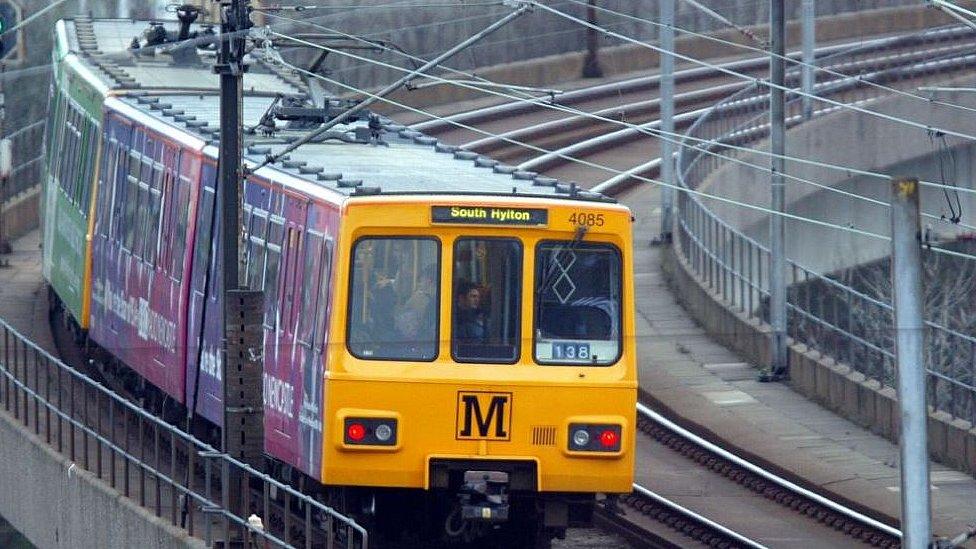Tyne and Wear Metro strike: Commuters and shoppers affected
- Published
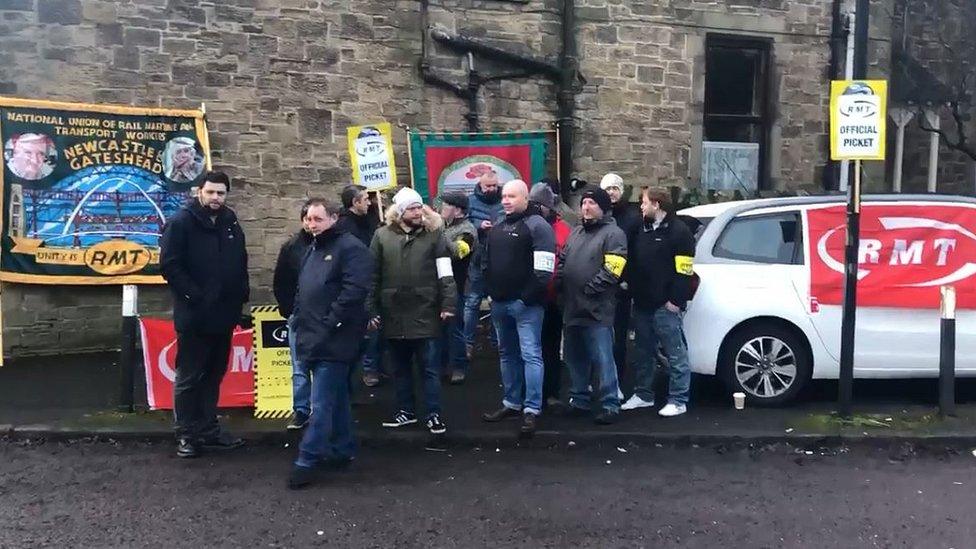
Workers joined a picket outside South Gosforth Metro station in Newcastle
Drivers on the Tyne and Wear Metro have begun a two-day strike, bringing chaos for commuters and Christmas shoppers.
The network has been brought to a standstill after talks between operator Nexus and the RMT union broke down.
Nexus has apologised to passengers and local bus companies have pledged to put on additional services.
The strike comes on what are traditionally two of the busiest shopping days before Christmas.
All of the 60 stations were out of action, leaving passengers having to find alternative routes to work.
Bus companies, Stagecoach, Go North East and Arriva said they planned to make extra capacity available on major routes.
Allow X content?
This article contains content provided by X. We ask for your permission before anything is loaded, as they may be using cookies and other technologies. You may want to read X’s cookie policy, external and privacy policy, external before accepting. To view this content choose ‘accept and continue’.
Bus companies, Stagecoach, Go North East and Arriva said they planned to make extra capacity available on major routes.
Metro Services Director Chris Carson branded the strike as "totally unjustified", adding drivers had been offered a 15% pay rise.
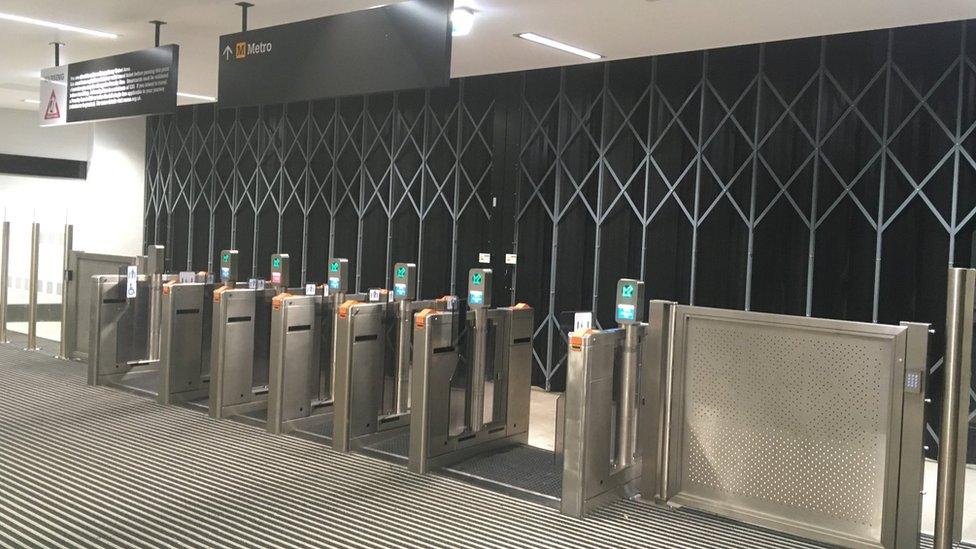
Passengers trying to use South Shields Metro station faced locked gates
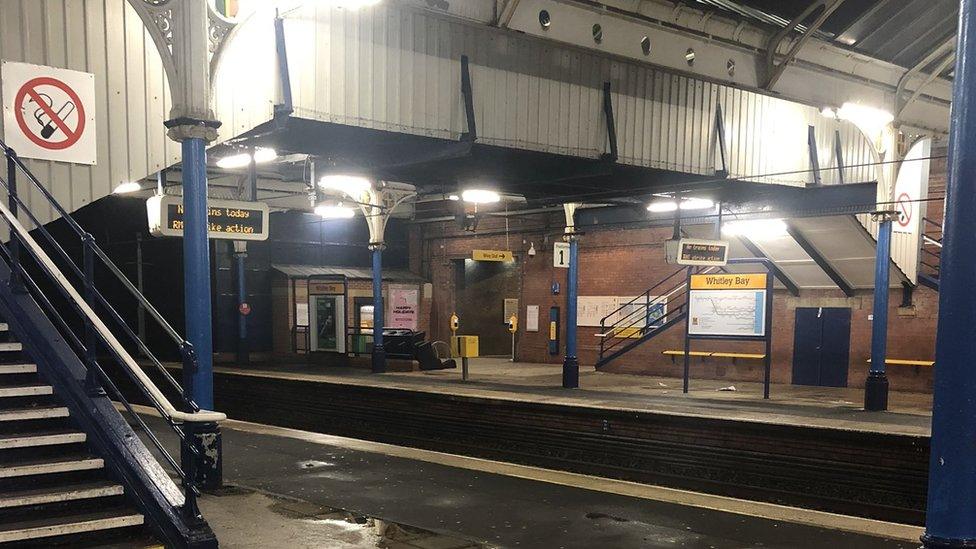
Whitley Bay Metro station is deserted
But the RMT union denied that and claimed any pay rise was linked to a change in its members' terms and conditions.
General secretary Mick Cash described support for the strike from members as "rock solid".
He said: "The company attitude shows nothing but contempt for our reasonable and justifiable claim which would provide flexibility for the introduction of the new rolling stock whilst seeing a fair increase in salary levels and a reduction in the working week."
Some people took to social media to vent their anger at the RMT, while others defended the right to strike.
Allow X content?
This article contains content provided by X. We ask for your permission before anything is loaded, as they may be using cookies and other technologies. You may want to read X’s cookie policy, external and privacy policy, external before accepting. To view this content choose ‘accept and continue’.
Allow X content?
This article contains content provided by X. We ask for your permission before anything is loaded, as they may be using cookies and other technologies. You may want to read X’s cookie policy, external and privacy policy, external before accepting. To view this content choose ‘accept and continue’.
Andrea, who works at Newcastle's Royal Victoria Infirmary, said she had to start her journey an hour early from South Shields to make her shift.
She told BBC Newcastle she was "very unhappy" about the disruption, adding: "Obviously we have clinics and patients coming in and we don't know how all this is going to affect their journeys.
"The journey back won't be any better so I don't know what time I'll eventually get home."
Martijn Gilbert, managing director at Go North East, said: "We appreciate that buses will be busier than normal as a result of the industrial action, so we're boosting capacity in key areas to minimise disruption and allow as many people as possible to travel."
Arriva said it would be using more double-decker buses on the busiest routes.

Follow BBC North East & Cumbria on Twitter, external, Facebook, external and Instagram, external. Send your story ideas to northeastandcumbria@bbc.co.uk.
- Published1 December 2019
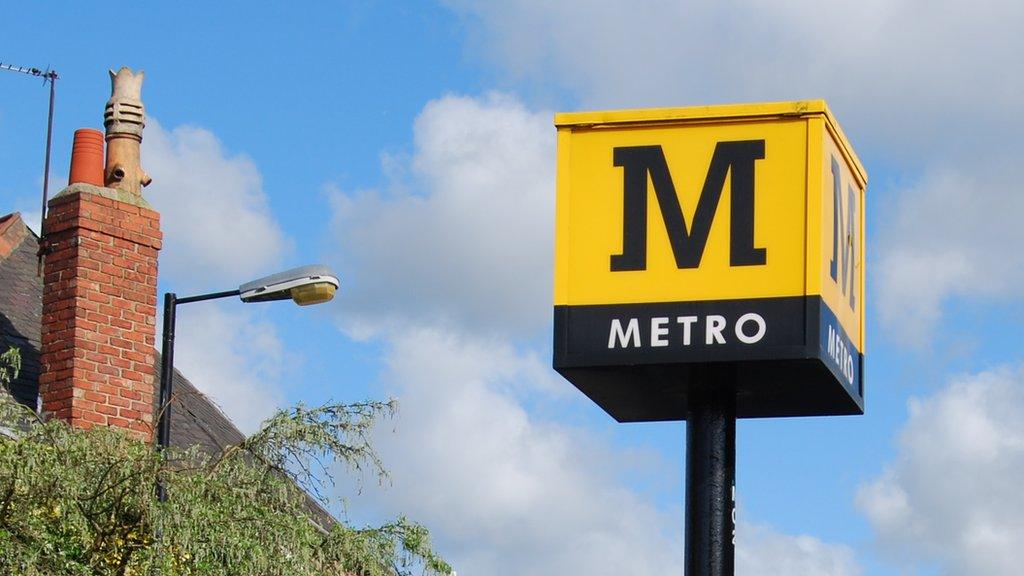
- Published14 November 2019
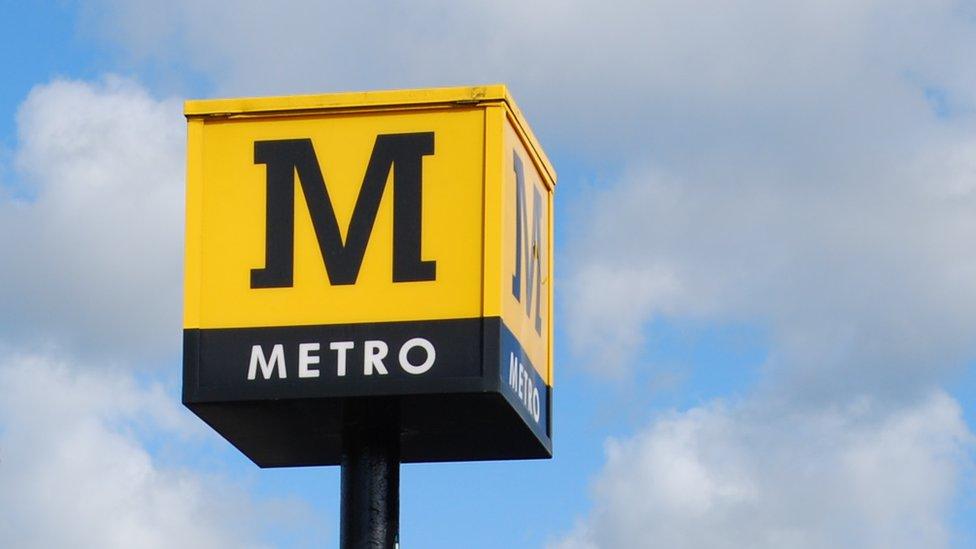
- Published25 January 2018
